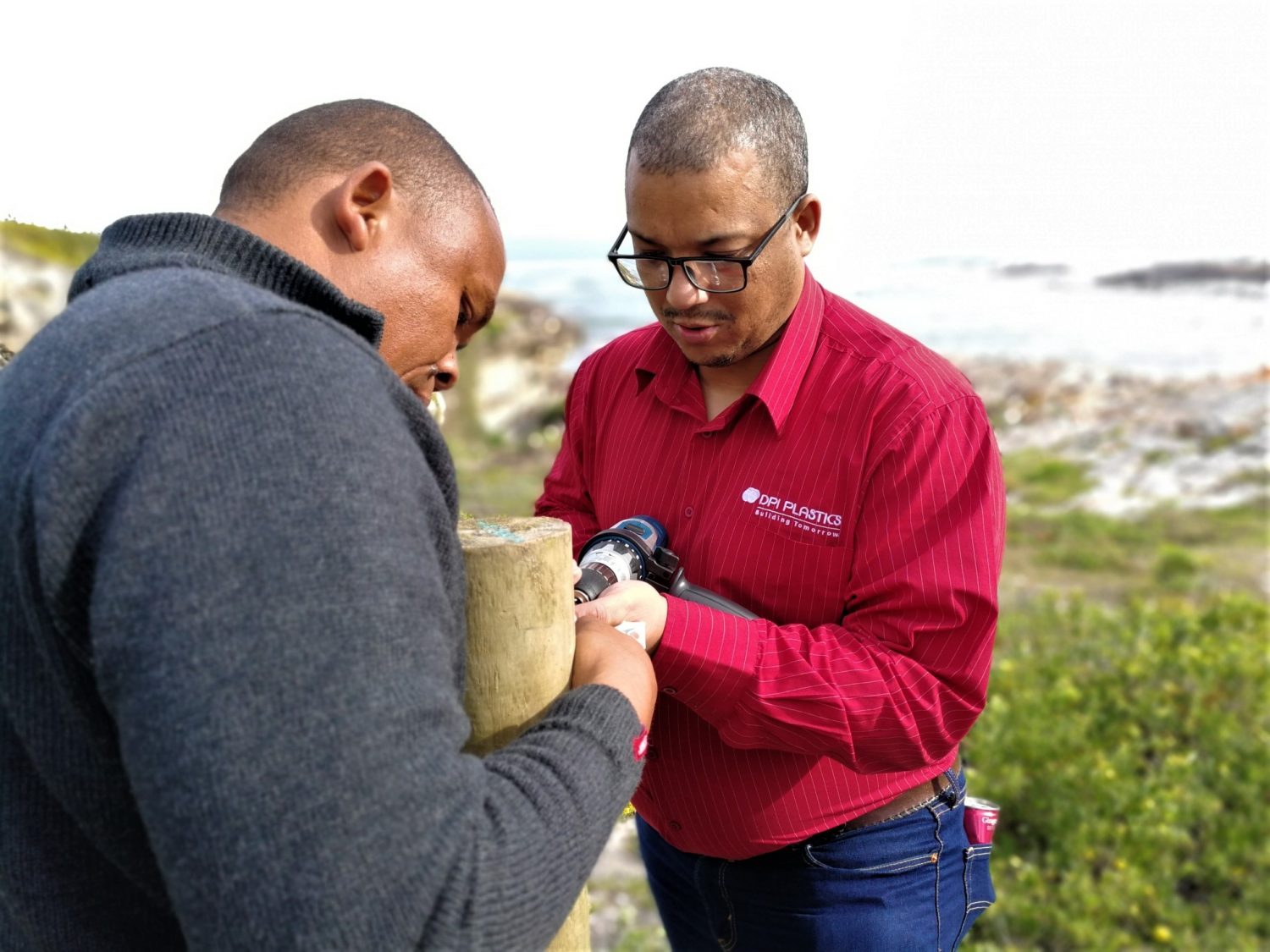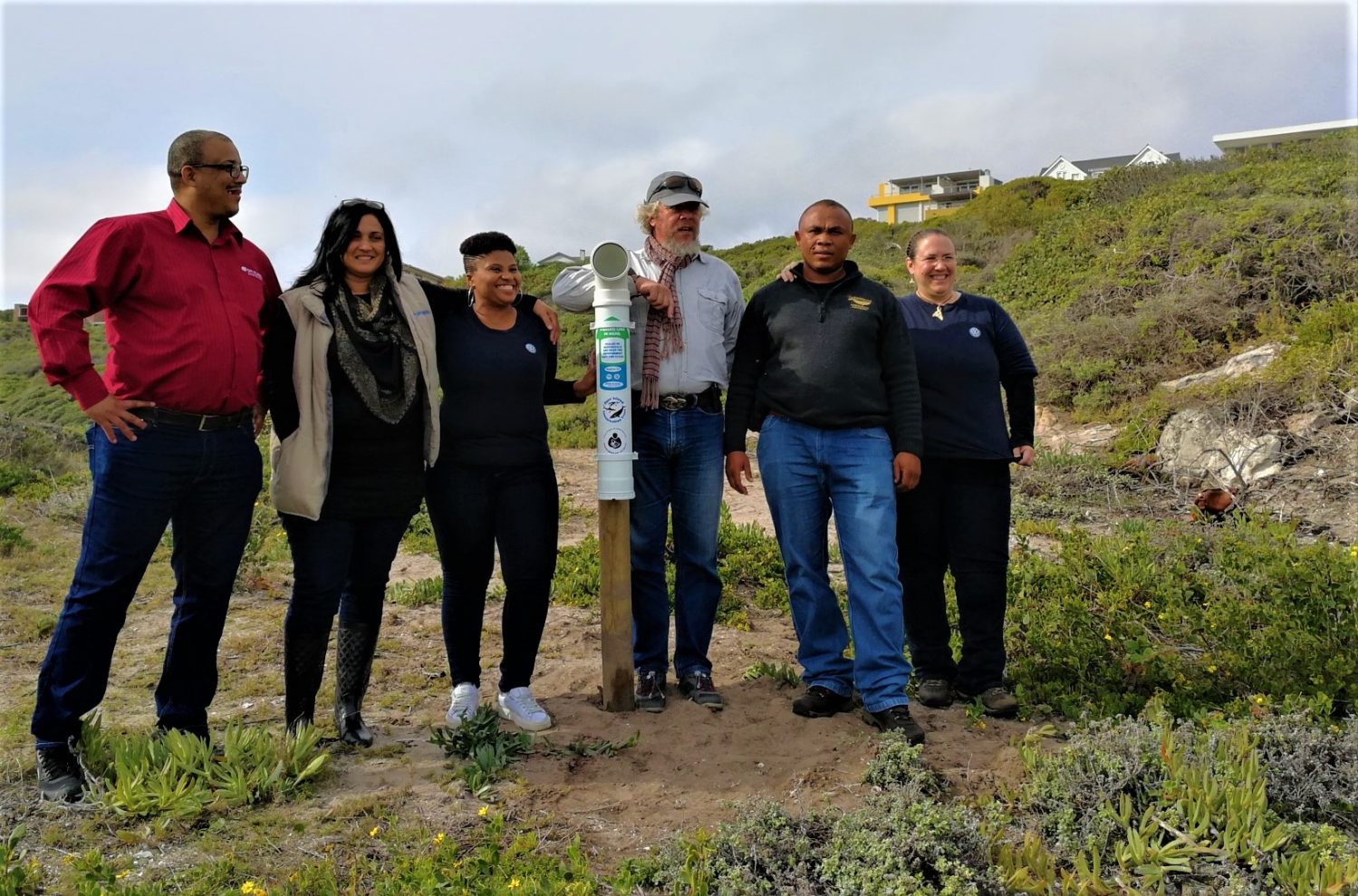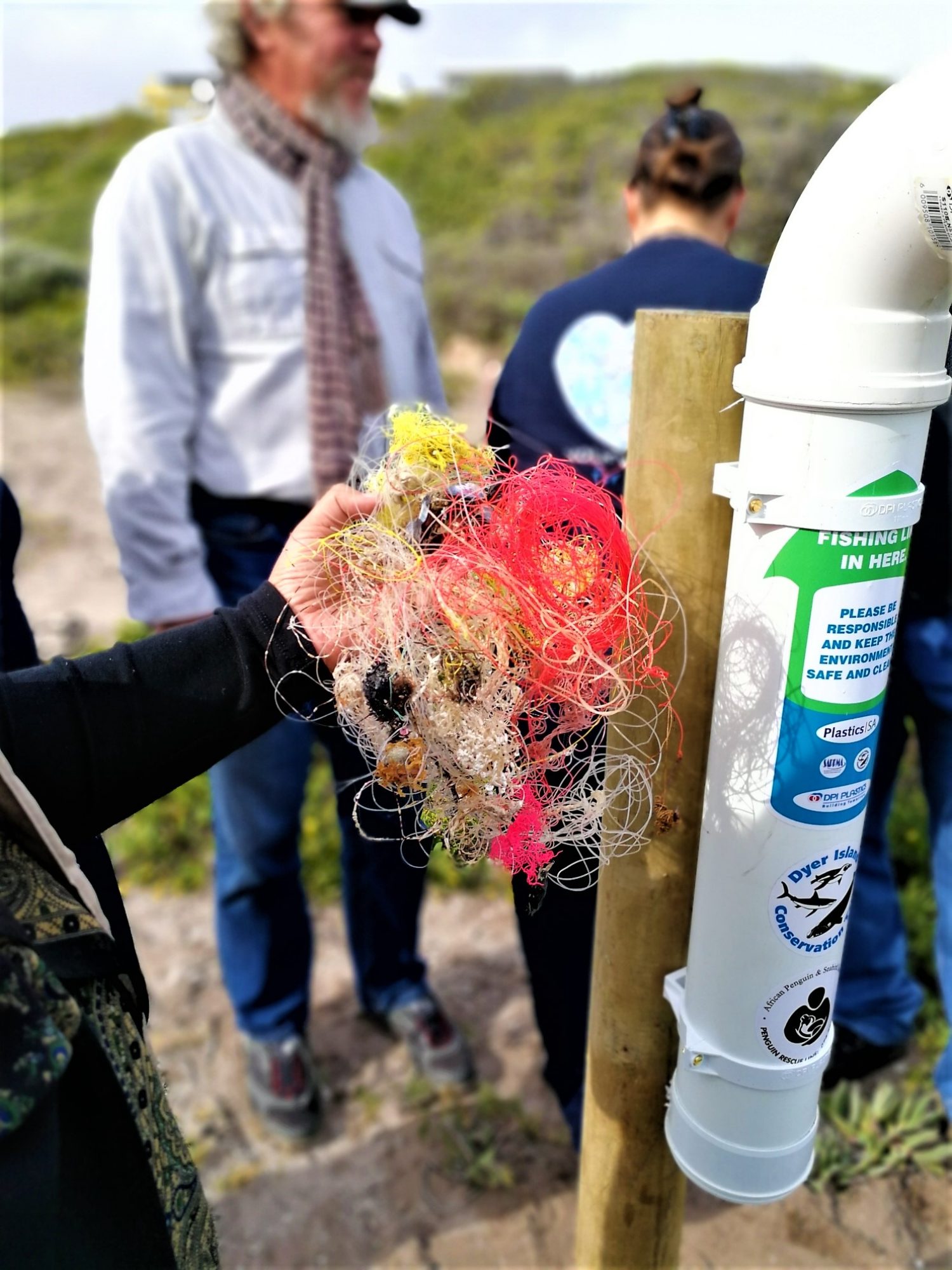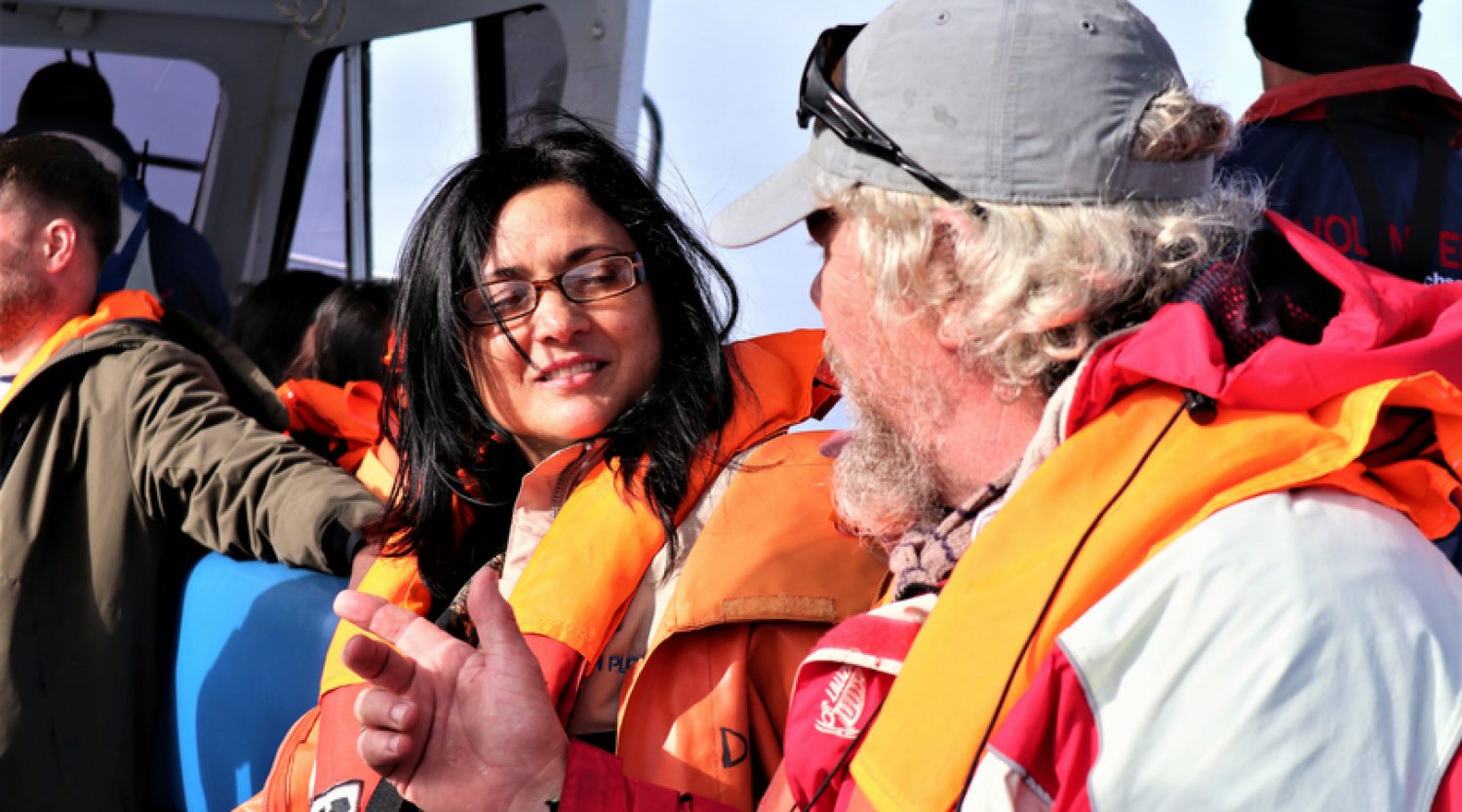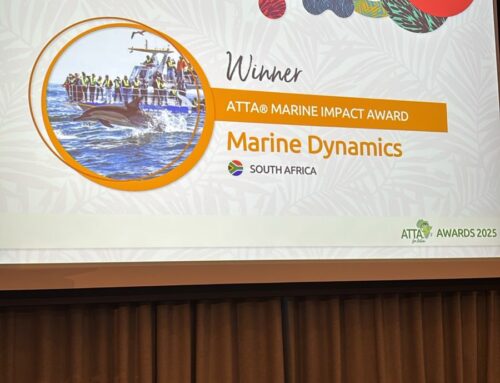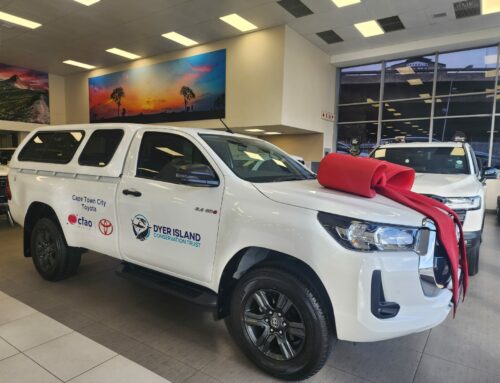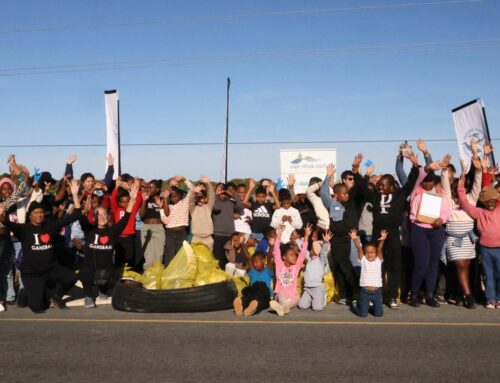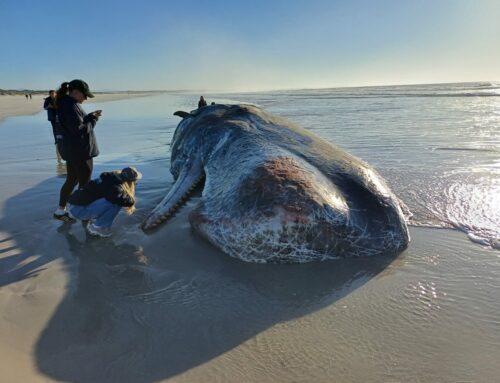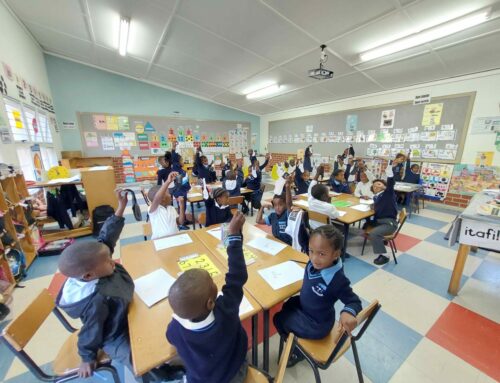June 08, 2018
The Dyer Island Conservation Trust (DICT) officially launched the Fishing Line Recovery and Recycling Program along the Gansbaai shoreline in 2010. This innovative project of strategically placed unique fishing line bins aims to reduce the severe environmental damage caused by discarded fishing line on our coastline. “Our marine animal rescue team has seen some of the worst injuries on seabirds, seals and sharks caused from discarded fishing line. We have to date collected probably over 5000kms of fishing line. The fishing line bin helps create public awareness about the negative impacts that fishing line debris has on marine life, water quality, and human welfare. We place bins at our local beaches and popular fishing spots encouraging anglers and beach walkers to dispose of their used fishing line. We hope to reduce the amount of fishing line entering the marine environment, as well as to increase the amount of fishing line being recycled. We also conduct regular beach clean-ups. We have strong partnerships with organisations that help the reach and management of this project,” says Trust CEO Wilfred Chivell.
The first twenty bins were placed in partnership with Overstrand Municipality in the Gansbaai area. Since then bins have been placed at various locations around the country including alongside Blue Flag beaches and is proving to be an icon for marine pollution. Since 2011, DPI Plastics has been providing material for these bins. This dedicated and critical sponsorship was arranged by John Kieser of Plastics ǀ SA.
“Monofilament fishing line is non-biodegradable and can last for hundred of years in the marine environment where it entangles wildlife, is mistakenly ingested by birds and animals, resulting in injury or death, and is also hazardous to boaters and swimmers,” says Anthea Paulsen of DPI Plastics. “DPI Plastics would like to enlarge our eco footprint and be seen as eco leaders in our industry. We look forward to the continued reach of the fishing line bin project. It can grow so much further, not only along the coastline but inland for rivers and dams where the same problems exist.”
Kieser is also responsible for organising interested organisations in South Africa to take part in the International Coastal Clean Up Day that happens every September. Kieser provides all bags, gloves and data cards for this annual event as well as all clean ups that take place throughout the year. “It is important that we collate the data forming an accurate picture of marine pollution and its sources in South Africa, so we can assess and advise plastic manufacturers where required. Product design can be revised minimising waste issues. The fishing line bin has been well received along the coast and a roadshow is planned for 2019,” says Kieser.
The team got together in Gansbaai on World Oceans Day, 8th June. After enjoying a whale trip with Dyer Island Cruises that reminded all of the marine world that needs protection, some fishing line bins were built with the Trust’s environmental education group. A bin was strategically placed in Stanford’s Cove in the De Kelders in an area commonly used by fishermen.

